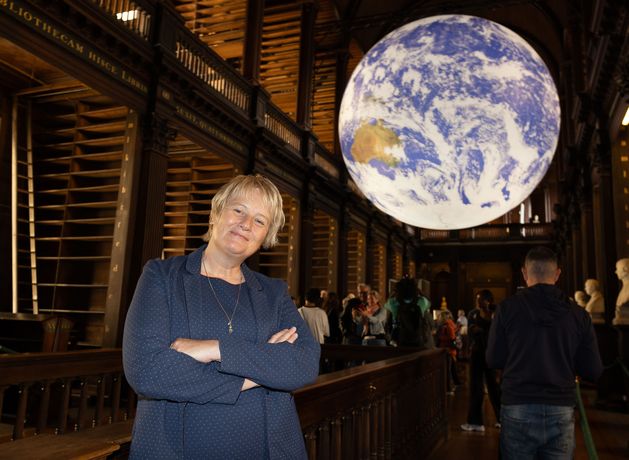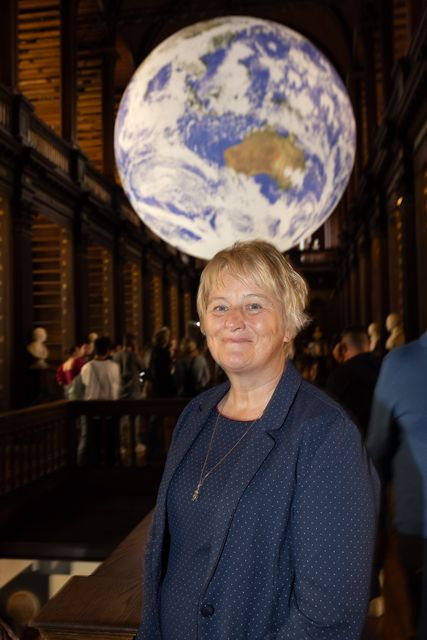Developments such as that currently being constructed on Dublin’s Poolbeg peninsula should really be “built on stilts” to proof them in relation to projected sea-level rise, she says.
“Dublin and Cork have the highest levels of sea rise in Europe, but there seems to be a disconnect here between planning legislation and climate-change factors,” she added.
Prof Wiltshire, a TCD graduate who returns to the university from the Alfred Wegener Institute (AWI) for Polar and Marine Research in Bremerhaven, Germany, is an expert in coastal research.
“Where it is more economical to retreat from the coast, we are going to have to do it here in Ireland — though on a case-by-case basis,” she said.
Dublin and Cork have the highest levels of sea rise in Europe
“It’s already been happening in other countries.”.
There is a growing belief that hard engineering solutions to coastal flooding and erosion are of short-term value and only move the problem elsewhere.
Prof Wiltshire defends the fact that her new post has been funded by Cement Roadstone Holdings (CRH) which was Ireland’s third largest industrial emitter of carbon dioxide last year.
TCD accepted around €1.5m from CRH to fund her post for the next 10 years, as part of a plan to combine and expand the university’s national and international climate research and expertise.
“The Government that paid my salary in the past never told me what to do, and the same applies with CRH,” she said.
“Only by engaging with industry can we develop new forms of technology, new ways of recycling and using water.”
Prof Wiltshire believes food security is a big issue for Ireland already, given the impact of a changing climate on farming and fishing.
The Government that paid my salary in the past never told me what to do, and the same applies with CRH
“Ireland can be climate resilient — there is still time — and even if there was no climate change and war broke out in Europe, we would have to survive on our own,” she said.
“In Germany, which I have just left, people are completely ‘climate traumatised’, forests are dying due to heat and drought, and they have no space for adequate offshore wind.”
Her former employer, the AWI in Bremerhaven, intends to collaborate with TCD on coastal protection, climate protection through renewable offshore energy sources, new food webs, and sea-level rise.
‘We have geo-engineered our way into this climate crisis,’ says TCD Prof Karen Wiltshire. Photo: Paul Sharp
Prof Wiltshire said it was “naïve” to view climate change as “nature versus humans” and rule out particular approaches in relation to geo-engineering.
“We have geo-engineered our way into this climate crisis,” she added.
“And I do believe we need legislation to underpin the changes we need, as it is the nature of human beings that we tend to cheat…”
Current planning legislation includes “guidelines” issued by the Housing Minister relating to development plans and flood-risk management, which both planning authorities and An Bord Pleanála are obliged to “have regard to”.
Earlier this summer, Minister for Environment Eamon Ryan promised an overhaul of planning regulations to “climate proof” them, and said the Department of Housing would have a key role.


